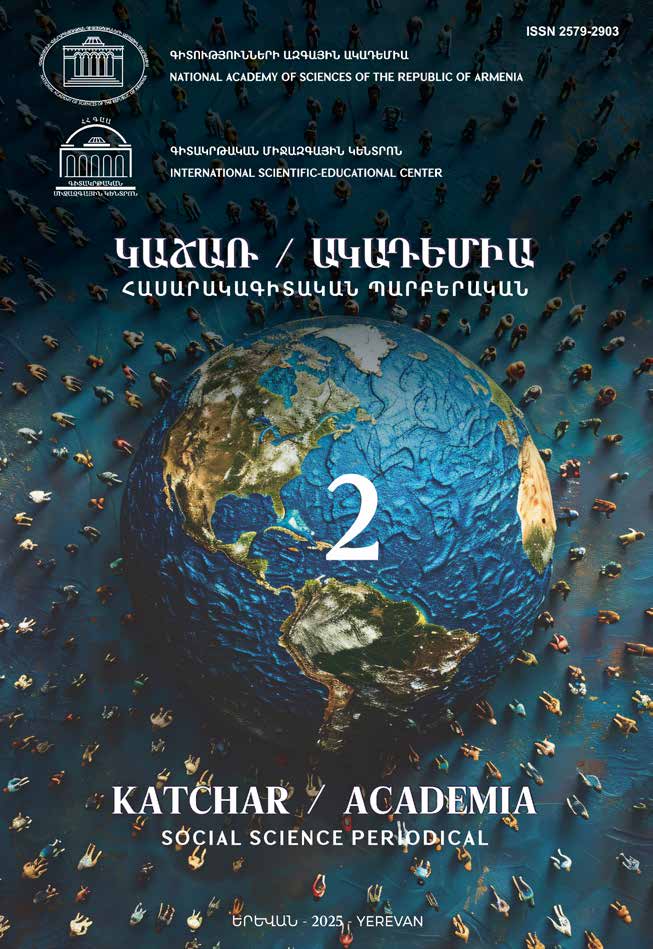ON CERTAIN SEMANTIC AND FUNCTIONAL FEATURES OF BUSINESS DISCOURSE
DOI:
https://doi.org/10.54503/2579-2903-2025.2-118Keywords:
Discourse, communication, business discourse, public speech, verbal communication, extralinguistic factorsAbstract
Contemporary linguistic literature offers a range of definitions for the term discourse. Particularly significant is the cognitive-communicative perspective, which views discourse as a complex phenomenon encompassing both process and product, integrating linguistic and extralinguistic dimensions (Fairclough, 1989).
This study is anchored in the concepts of discourse, business discourse, and corporate discourse. While these terms are often used interchangeably within certain linguistic frameworks, there is a growing tendency to differentiate them more precisely. This article attempts to characterize and explore these notions in greater depth, with a special focus on business discourse as a distinct communicative domain.
Research findings suggest that business discourse differs from corporate discourse in important ways. These differences stem from transformations in the modern business environment, where communication—shaped by a host of linguistic and extralinguistic factors—plays a pivotal role.
The study explores key types and subtypes of business discourse, their defining features, and the primary verbal and non-verbal tools that contribute to crafting impactful, persuasive, and goal-oriented communication in business contexts. Examples illustrating the structural patterns and rhetorical strategies of business discourse are drawn from the public speeches of prominent business figures such as Mark Zuckerberg, Jeff Bezos, and Bill Gates, whose discourse practices provide rich material for analysis.

Downloads
Published
How to Cite
Issue
Section
License
Copyright (c) 2025 KATCHAR / ACADEMIA. SOCIAL SCIENCE PERIODICAL

This work is licensed under a Creative Commons Attribution-NonCommercial-NoDerivatives 4.0 International License.



